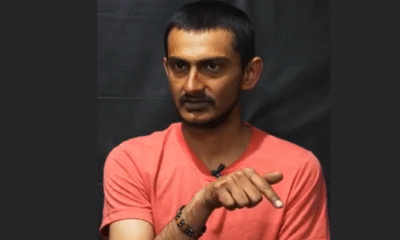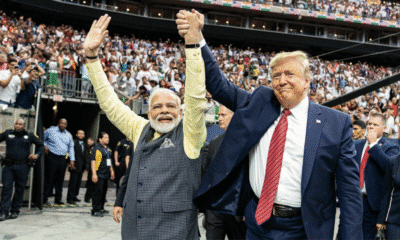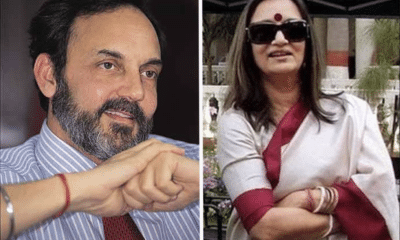Law and Crime
The Unforgivable Reality: Women’s Safety Used as a Political Tool?
Prime Minister Narendra Modi recently addressed the nation, underscoring the need for stringent measures to protect women and labelling crime against women as an “unpardonable sin.” His statements come at a time when the country is grappling with a surge in heinous crimes against women, with over 16 reported rape cases in just 13 days, including the brutal rape and murder of a 31-year-old doctor in Kolkata. While the Prime Minister’s words resonate with urgency and concern, they also raise a critical question: Are these declarations genuine commitments, or are they being wielded as political weapons?
A Grim Reality Unfolds
Despite the Prime Minister’s strong words, the grim reality of escalating crime against women paints a starkly different picture. In just 13 days, India has witnessed over 16 horrifying incidents of rape, including the brutal rape and murder of a 31-year-old doctor in Kolkata, which has left the nation reeling in shock and anger. These are not isolated incidents but part of an alarming trend.
In Kolkata, the brutal rape and murder of the young doctor was a reminder of the pervasive threat women face daily. Meanwhile, in Uttarakhand, a nurse was raped, and the gang rape of a minor girl sent shockwaves across the state. In Bihar, a Dalit minor was gang-raped, highlighting the intersection of gender and caste-based violence. Tamil Nadu saw a 22-year-old woman raped by her friend and three others, while in Bhopal, a Class 11 student was raped by a minor.
The horror of crime against women continued in Siliguri, where another minor was gang-raped, and in Uttar Pradesh, where an 11-year-old girl was raped. The state also witnessed the rape of a 14-year-old girl by her school teacher. In Bengaluru, a student was raped by a biker after accepting a lift. In Madhya Pradesh, a 69-year-old man raped a teenage girl. The list is distressingly long, with a Dalit nurse held hostage and raped by a doctor in Uttar Pradesh.
In Maharashtra alone, over 10 cases have been reported in the past week, including the sexual abuse of two minor girls in a school in Badlapur, which led to protests across the state. These cases are not mere statistics; they represent the brutal reality faced by women and girls across the country.
Also read 151 Lawmakers with Charges, Including Rape: The Troubling Nexus of Crime and Politics in India.
Empty Promises or Genuine Action?
The Prime Minister emphasized that those guilty of crimes against women should not be spared, nor should anyone who assists them. He mentioned new laws and mechanisms, such as the ability for victims to file e-FIRs from home, as part of his government’s efforts to ensure justice. However, these assurances appear hollow when juxtaposed against the reality of the justice system’s failures.
Consider the case of Bilkis Bano, a victim of one of the most heinous crimes during the 2002 Gujarat riots. In a move that shocked the nation, the Gujarat government granted remission to all 11 convicts in the case. Their release from jail was not only celebrated but also welcomed with flowers, raising serious doubts about the government’s commitment to justice for women.
This incident, coupled with the recent temporary releases of high-profile rape convicts like Dera Chief Gurmeet Ram Rahim Singh and self-styled godman Asaram Bapu, further erodes public trust in the justice system. How can the government claim to be tough on crimes against women while allowing convicted rapists to walk free, even temporarily? This contradiction suggests a disturbing trend where justice is negotiable, and safety is not prioritized.
The Political Weaponization of Women’s Safety
The timing of the Prime Minister’s statements, made during the ‘Lakhpati Didi Sammelan’ in Maharashtra, where he was addressing women from self-help groups, raises questions about the sincerity of these declarations. While celebrating women’s economic achievements is undoubtedly essential, pairing such celebrations with promises of safety seems opportunistic, especially when those promises appear to falter in practice.
The repeated invocation of women’s safety in political speeches, particularly during election seasons or public events, risks reducing a critical issue to mere rhetoric. Are these speeches designed to create a narrative of concern and action, while the ground reality tells a different story?
A Call for Accountability
The Prime Minister’s statement that negligence at any level must be addressed is a call that should extend to his own government. The surge in violence against women and the inconsistent application of justice demands more than words—they require accountability and systemic change. Labelling these crimes against women as “unpardonable” while simultaneously allowing systemic failures to persist is not enough.
The government’s response to this crisis must be scrutinized, not only in terms of legislative changes but also in the implementation and enforcement of these laws. The safety of women cannot be used as a tool for political gain; it must be a fundamental priority that is reflected in consistent and decisive action.
As the nation mourns the victims and their families grapple with unimaginable grief, the government must be held accountable for its promises. The question that lingers is whether the Prime Minister’s words will translate into meaningful change or if they will remain another chapter in the politicization of women’s safety. The answer lies not in more speeches but in the tangible protection and empowerment of every woman in India.








































Pingback: 151 Lawmakers, 16 for Rape, crimes against women, Face Charges